Past Projects
ZYCALA!, 2017-2021
Gaia Education, WWF Zambia and the Young Emerging Farmers Initiative (YEFI) launched, on the 1st October 2017, a three-year project in the districts of Chitambo, Serenje and Mkushi in Central Province, Zambia. Funding was provided by Scottish Government, as part of its Zambia and Rwanda Development Programmes Funding Round.
The project built the capacity of 420 majority-female local youth leaders to become active and effective change agents in campaigning on social and environmental issues, sustainable income generation and food security actions. The youth change agents have reached out to over 300,000 youth to raise awareness of the need for innovative social and natural systems management through multiplier actions on ecosystems regeneration and advocacy campaigns.
The empowered youth have been working with households to increase food security through diversification and abundance of nutritional farm produce and 27 community enterprises. Beekeeping, vegetable conservation, fisheries, dried turmeric and native tree nurseries have been identified as great opportunities for youth-led income generation.
They have benefitted from Gaia Education’s expertise in community building, agroecology and sustainable livelihoods, WWF Zambia’s mastery of conservation, advocacy and communication, and YEFI’s experience in youth-led programmes and young farmers’ networks, and are now leading their communities to increased food security and a 40% net increase in income so far, through beekeeping, agro-ecological farming techniques, food preservation, poultry rearing and turmeric cultivation.
BEEKEEPING
The bee-keeping enterprises, in particular, have turned out to be a big success. The high quality of the honey produced, and the growth and consistency of production, are now attracting international buyers!
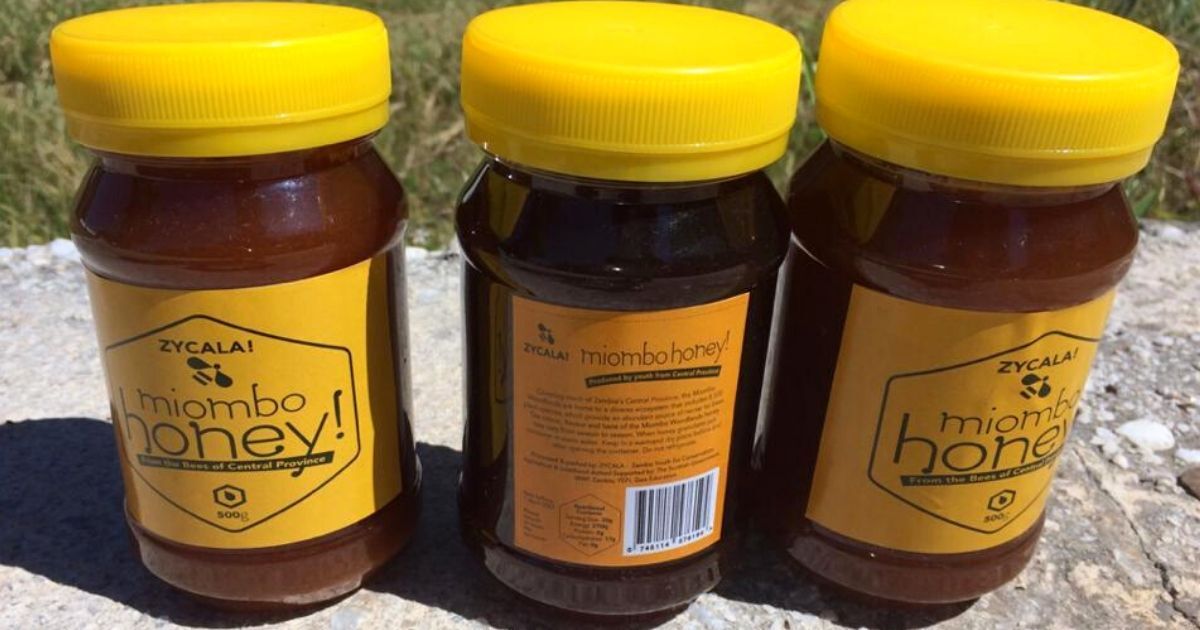
Tiza Zyambo, Project Officer for our partner, WWF Zambia, tells us more about the impact of honey production on the lives of the women in the project, and the future of the Zycala Honey business.
Project Milestones
Year 1
2017 saw the beginning of this three year project on the districts of Chitambo, Serenje and Mkushi.
Year 2
In 2018 the youth leaders deepen their knowledge of conservation and agriculture.
Year 3
The third year began with beekeeping training and colonising the hives.
Youth Glocalisers for Change, 2019-2020
The Youth Glocalisers for Change training programme holds the vision of an informed, empowered, imaginative and inter-connected generation of Austrian Youth Glocalisers, able and willing to adapt lifestyles and consumer behaviours to planetary boundaries while achieving the SDGs by 2030.
Bildünger and Ashoka Austria, in their commitment to create a long-term open space for the exchange and development of ideas in Austrian education, are supporting Gaia Education and Plattform Footprint, to bring the SDGs and dynamic, participatory sustainable education into Austrian secondary schools.
Whilst it is universally acknowledged that the SDGs need to be achieved urgently, how does this change become reality on the ground? In Austria, there has been concern about the lack of participatory and holistic education on sustainability issues, to empower young people to become the confident changemakers society so very much needs.
This programme aims to bridge that gap.
This project was supported by the Sinnbildungsstiftung.
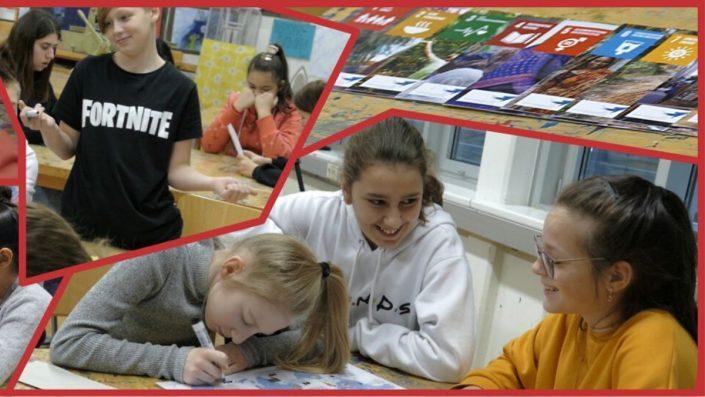
Project Objectives
To support Austrian students to become ‘glocalisers’, we are developing a youth-focused training package, which blends Plattform Footprint’s work on Ecological Footprint in schools with Gaia Education’s cutting edge curricula and participatory methodology for sustainable development. We will pilot the educational package in schools, working with 250 students, providing a hands-on learning experience which measures their footprint on Earth and looks at ways to reduce this so that our societies tread more lightly.
Gaia Education’s Whole Systems Design Framework and SDG Training for Multipliers will be adapted for the young students, so that they can explore the SDGs within a dynamic, question-focused framework, and gain tools and ideas from the the world’s most innovative eco-communities and transition projects.
You can read and download this programme report here.
To view the outputs of the project and to download the classroom resources, visit our German webpage for the project here.
Sustainable Management of Cultural Landscape (SUMCULA), 2017-2020
The objective of this partnership is the development of courses and didactic resources on Sustainable Management of Cultural Landscapes, Regional Development and Cultural Heritage to be conducted at a Master’s level.
-
Curriculum development: Sustainable Management of Cultural Landscapes, Regional Development and Cultural Heritage based on a number of cases
-
Case studies of cultural landscape management
-
Workshops, conferences and Intensive Programmes
-
Scientific publications in the ECyS Journal ECOCYCLES
-
Landscape management software for local and regional development and planning
Members of the partnership cover a wide range of competences:
- University of Gothenburg, Sweden
- University of Pécs, Hungary
- University of Pannonia, Veszprém, Hungary
- Lake Balaton Development Coordination Agency (LBDCA), Siófok, Hungary
- European Ecocycles Society (ECyS)
- University of Palermo (UNIPA), Palermo, Italy
- Ecole des Métiers de l’Environnement (EME), Bruz, France
- Mendel University (MENDELU), Brno, Czech Republic
- Gaia Education, Findhorn, Scotland, UK
- Slovak Agricultural University (SPU), Nitra, Slovakia
- University College of Tourism and Ecology (WSTiE), Sucha Beskidzka, Poland
- Universitat Rovira i Virgili (URV), Tarragona, Catalonia, Spain
- University of Applied Sciences (HTW), Dresden, Germany
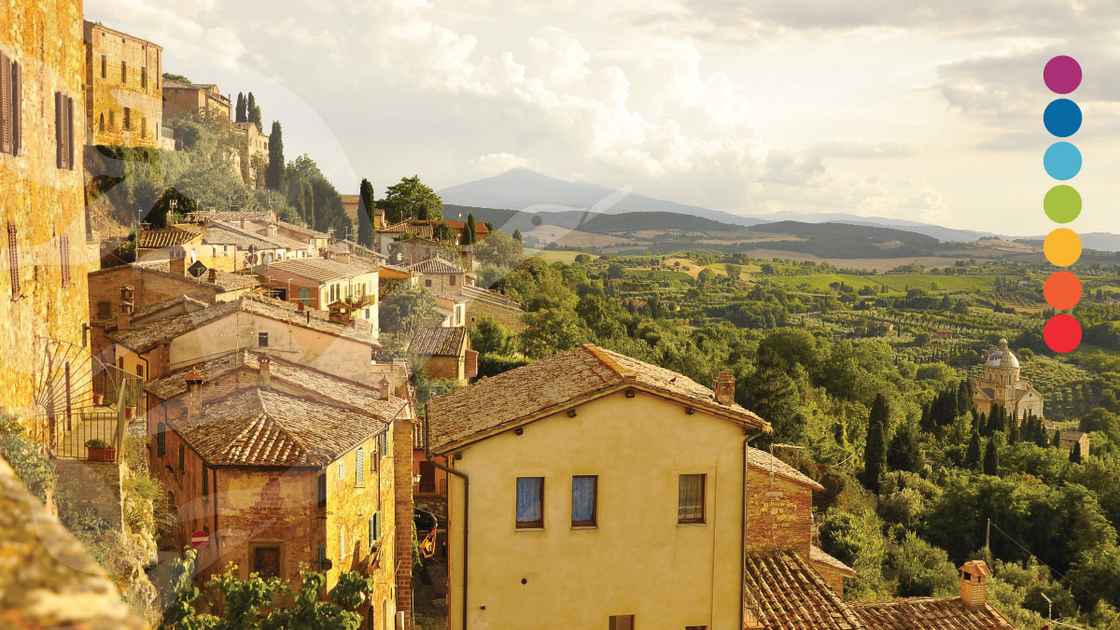
SUMCULA Ecocycles Articles
The following papers were generated by Gaia Education during the project:
Community-led approaches and interventions for the regeneration of abandoned towns in southern Italy
May East, Ecocycles Journal, 2(1), 18–25. | Read it here
Current thinking on sustainable human habitat: the Findhorn Ecovillage case
May East, Ecocycles Journal, 4(1), 68–72. | Read it here
Community-based solutions to locally-sourced food production systems featuring the revival of indigenous knowledge
May East, Christopher Mare, Ecocycles Journal, 4(1), 32–40. | Read it here
Regenerative strategies for climate justice
May East, Ecocycles Journal, 4(1), 41–46. | Read it here
Rising cities: continuity, innovation and deliberation of Vauban District, Freiburg, Germany
May East, Ecocycles Journal, 4(2), 58–71. | Read it here
Mapping the ‘Presency’ of Women in Cities
May East, Ecocycles Journal, 5(2), 1–5. | Read it here
Design for sustainable cultural landscapes - A whole-systems framework
May East, Ki Utara Pinheiro-Gibsone, Bernard Combes, Ecocycles Journal, 7(1), 1-13. | Read it here
Design for Sustainability & Organic Food Systems for Asylum Seekers in Denmark, 2017
Six-week Course for Asylum Seekers in Design for Sustainability and Organic Food Systems, taking place in Avnstrup, Denmark. This project was made possible from the partnership of Gaia Education with Chora Connection, Gaia Trust, UN Sustainable Development Goals and The Danish RED CROSS. The project main goals were ranging 3 main areas: Society, Economy and Environment.
Society
Enhancing solidarity between migrants and local communities, encouraging collaborative decision-making, designing inclusive local governance systems, acquiring tools for conflict facilitation
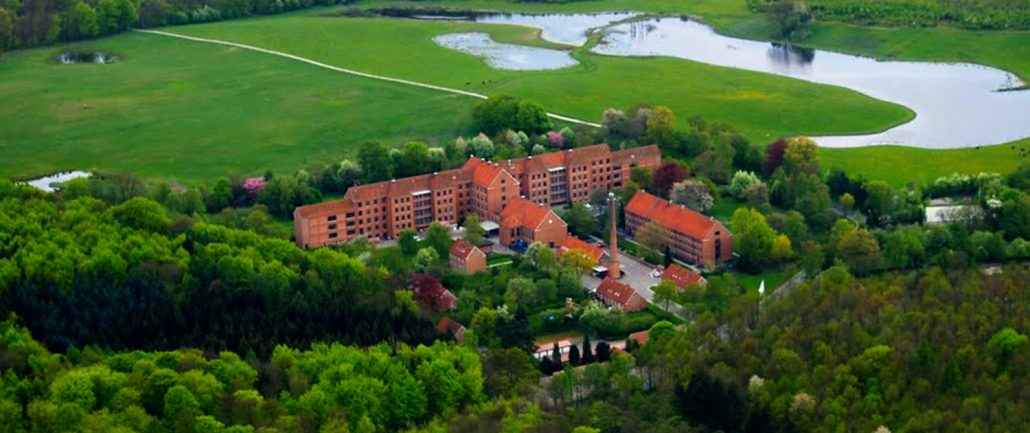
Economy
Enhancing ethical, fair and transparent business relations, increasing autonomy from the agro-industrial system, promoting viable livelihoods and socio entrepreneurship, bridging the gap between producers and consumers
Environment
Understanding the impact and developing resilience to climate change in food, land, biodiversity and water systems, bringing culture back to agri-culture, appreciation of the diversity of cultural influences on food patterns.
Socio-Economic Integration of Migrants & Sicilian Youth through Organic Products (Sicilia Integra), 2016-2017
Sicilia Integra aims to support the socio-economic integration of migrants arriving in Sicily through sustainable community and agroecology capacity-building activities with the view to creating an alternative trading platform for the commercialisation of Sicilian organic products in European markets. Furthermore the project aims to foster the professionalisation of migrants and unemployed youth, create new job opportunities in regenerative agriculture, while contributing to the development of a circular economy in Sicily.
The initiative has been developed by Gaia Education and the University of Catania in partnership with the Don Bosco 2000 and I Girasoli migrant welcome centres, organic farmers’ cooperatives and European ethical organic food companies.
Specific Objectives
-
Creating Education for Sustainable Development (ESD) learning pathways to support the professionalisation of migrants and young Sicilians in the emerging European organic food markets
-
Building an inclusive, decentralised and transparent system of governance and long-term relationships among the different stakeholders
-
Establishing circular economy schemes connecting Sicilian regional food systems with European organic food buyers and markets
Cross-cutting Objectives
-
Promoting humanitarian values which will inform the actions aimed to address complexities deriving from historic cultural, social and religious differences
-
Conducting the vertical integration between the project and the 17 UN Sustainable Development Goals, COP21 accord, EU2020
Project Milestones
Milestone 1: Design for Sustainability and Organic Food Systems five-week course
The five-week learning journey developed and conducted by Gaia Education in partnership with the University of Catania provides the knowledge and practical skills for regenerative and organic farming techniques in the context of the three dimensions of sustainability– environment, society and economy, with culture as an underlying dimension. 17 migrants and two unemployed Sicilians were trained in the first course which took place in Piazza Armerina in Spring 2016 with all of them preparing to enter six-month training-on-the-job apprenticeships starting during Summer 2016.
Milestone 2: Training on the job
The training on the job began during Summer 2016 with five trainees working in two partner farms where they learned agricultural skills alongside organic farmers. Tasks included livestock husbandry, feeding chickens, cows and pigs and learning to graze sheep, as well as the production and packaging of milk and yoghurt products.
Milestone 3: Designing urban gardens in Floridia
Gaia Education, University of Catania and Passwork conducted the second five-week Design for Sustainability and Organic Food Systems for 16 migrants from Mali, Senegal, Egypt, The Gambia, Ivory Coast and Nigeria and six unemployed youth activists who engaged in participatory learning and on-site design to improve urban land for organic agriculture at the edge of the town of Florida.
Milestone 4: Rehabilitation of abandoned urban gardens in Catania
Migrant youth and unemployed Sicilians embarked on a two-month learning journey led by Gaia Education, the University of Catania and Il Nodo, with a five-week Design for Sustainability and Organic Food Systems course and a three-week field implementation. The 14 migrants and 7 Sicilian youth learned how to develop a productive garden oasis system using minimum water and maximum fertility retention, and diverse microclimate opportunities.
Milestone 5: Paternò inspires more designers for sustainability
Ten migrant youth and seven unemployed Sicilians embarked on the now well-tested five-week learning journey in Design for Sustainability and Organic Food Systems, led by Gaia Education, the University of Catania and associazione I Girasoli.
The programme took place at Masseria San Marco, in the municipality of Paternò, in the Simeto river valley, at the foot of Mount Etna’s southern side. This is a bioregional laboratory and cross-breeding ground for numerous associations and initiatives. Ten municipalities were involved in redesigning the future of what was once one of the richest citrus and vegetable growing areas of Sicily.
Milestone 6: Exploring aromatic and medicinal plants in the Iblei Mountains
In the late spring of 2017, Gaia Education, the cooperative Passwork and the cooperative l’Arcolaio conducted, in the Iblei Mountains, one of the most biodiverse regions of Europe, a course on aromatic and medicinal plants.
Twelve women aged 16 to 29, from Nigeria, The Gambia and Mali, joined the course. (Most of these women have been in treatment for varying degrees of PTSD condition.) Through a dynamic journey grounded in theoretical and practical experiences, they learned about indigenous plants such as rosemary, sage, lavender and oregano.
Youthful Herbal Chocolate, 2016-2017
The Youthful Herbal Chocolate Project aims to build the capacity of these young women to begin a new life as they arrive in a region with the richest concentration of biodiversity in Europe, in terms of medicinal and aromatic herbs. The project combines the wild herbs of the Iblei territory with the traditional art of chocolate making in the city of Modica, with a view to creating opportunities for the young women to specialise in organic herbal chocolate making.
Led by Gaia Education in partnership with the migrant welcome centre, Passwork, and the social cooperative L’Arcolaio, this project intends to support the professional development of young female migrants and to indirectly support the emerging mosaic of regenerative medicinal and aromatic herbs, small-scale growers and the cooperative of chocolatiers of Modica.
Project Milestones
Milestone 1: Building Community and Embracing Diversity
The social component of the project supported the young women to learn by engaging in participatory processes, scenario planning, collaborative communication, advocacy and leadership development. This strengthened the sense of community while embracing diversity.
Milestone 2: Herb Identification and Reconnaissance
The herbal component of the project supported the young women to explore how Mediterranean herbs can be used to support their health and well-being.
Milestone 3: From Tree to Bar - How does cacao turn into chocolate?
Through practical sessions they became acquainted with different forms of chocolate
Milestone 4: Basic Business Plan - understanding the chocolate business
In this module young migrants learned how to build a basic product costing model – from ingredients to production costs.
Milestone 5: Technical sessions at Corsino - the 150 year old pastry institution of Sicily
The technical sessions took place at the 150 year old family pastry shop, Antica Pasticceria Corsino, where the young migrants were introduced to traditional Sicilian chocolate-making.
Milestone 6: How to develop a chocolate brand people can’t stop talking about
Young migrants engaged in two branding sessions which introduced the importance of developing brand elements such as logos, symbols, packaging and signage in a way that tells a story that resonates with consumers.
Milestone 7: Courage Chocolate - Testing a Vibrant Market
Five hundred chocolates developed, branded, handmade and packed by the young women migrants settling in Sicily, were brought to market for the first time at the LUSH Showcase 2018 in Manchester.
Increasing Food Security, Income Generation & Environmental Sustainability in the Podor Region, Northern Senegal, 2014-2017
This three-year food security project engaging four villages of the Podor Region of northern Senegal – Guédé Chantier, Lahel, Moundouwaye and Diarra – supported female villagers to adapt 16 hectares of community land to produce organic food more efficiently, and increase the communities’ resilience and capacity to adapt to the advancing effects of climate change.
The project strengthened the communities’ social, economic and ecological competence and built skills in agroforestry, permaculture, food processing and social enterprise. It directly benefitted over 3,000 community members, 85% of whom were women.
In recognition of the project's success, our funder, UK Aid Direct, awarded the project an A-rating.
Gaia Education, CIFAL Scotland and Le Partenariat came together as partners to support these dynamic women.
Results
By the end of Year two, the project was already seeing outstanding results in the permaculture gardens. There was an abundance of produce, and surveys related to the permaculture gardens conducted in March 2016 by local Monitoring and Evaluation agents trained by the project (Eco-sentinels) showed 100% of the students were using compost, 80% liquid manure and 55% fish tonic – the three main permaculture techniques promoted by the project.
The permaculture techniques resulted in the cessation of the use of agrochemicals on the 16 hectares. Soil nutrient tests performed in March 2016 and compared to January 2015 showed the project had increased phosphorus and potassium levels without chemical additives.
Additionally, villagers were now producing and consuming a more diverse array of food, which is improving nutrition and health.
Of 120 farmers surveyed in March 2016, 100% said they no longer spent anything on chemicals, 97% said they consumed a more diverse diet, 100% said they bought less from the market, while 82% reported an increase in food production.
Milestones
Year 1
Milestone 1: Scenario Planning and Transition Training
Conducted by Transition Trainer and educator May East, a total of four community consultation and training sessions were carried out to launch the project in Lahel, Diarra, Moundouwaye and Guédé, with a session for women only.
Milestone 2: Permaculture Design Course
The first Permaculture Design Course was conducted in two parts, December 2014 and February 2015, for 45 villagers representing the four communities. Conducted by biologist and permaculture expert Prof Abdourahmane Tamba.
Milestone 3: Design for Sustainable Settlements course
Conducted by Community Development Trainer Pradyut Nayek, the Design for Sustainable Settlements course, a 10-day capacity building activity, engaged 90 participants from the four villages in March 2015. The course provided climate resilient techniques for food security and livelihood development.
Milestone 4: Fencing and Land Preparation
Once the agroforestry and permaculture plots were identified and design plans were created, land preparation became a key activity of Year 1. The first steps of the process were fencing, irrigation systems, vetiver planting and collection of organic material to restore health to the poor soils, provide erosion control, aid water conservation and support crop protection.
Year 2
The second year has closed with a remarkable success. The combination of learning activities and community engagement has changed the food landscape, empowered women, increased climate resilience and enhanced their livelihoods. Furthermore we installed five pumps and 14 hectares worth of fencing. A big year all in all!
In Diarra 126 women engaged in the permaculture garden and 115 men involved in the agroforestry have closed the second year with a garden bursting with a large variety of vegetables such as onion, tomato, lettuce, eggplant, carrot, turnip, big and small chilli, pepper, combo, melon, papaya, bananas and more. Women associate their good health and well-being with the quality of the food since they are only using organic methods for food production.
Milestone 1: Agroforestry Training
Conducted by agroforestry expert Mohamed Marigo in April 2015, the training aimed to strengthen the communities’ ability to manage their agricultural land through agroforestry technologies, to improve farm productivity and increase their availability to nutritious foods.
Milestone 2: Permaculture Design Course
Conducted by Permaculture trainer Pradyut Nayek, the second Permaculture Design Course took place in August 2015, building upon previous land restoration achievements.
Milestone 3: Change Agent Training
Harnessing the leadership demonstrated by some villagers, this learning activity, which took place in September 2015, provided a group of 50 change agents with the skills to guide and lead change within their communities by creating health-restoring diversified gardens. Participants have also developed the skills necessary to lead field demonstrations in the Permaculture Festival to engage the wider community.
Milestone 4: Permaculture Festival
In September 2015 the Project Change Agents gathered at a festival to showcase the key achievements of the project and share the lessons learnt, to raise awareness among wider communities. Tours of the villages and small peer-to-peer training sessions in Permaculture Design were provided to equip new villagers with the basic skills necessary to start rehabilitating the impoverished soils of the Podor region.
Milestone 5: Food Processing and Preservation Training
To close the project’s second year and to take advantage of the large harvest, the training was conducted with 30 women from Diarra and Moundouwaye over five days.
Year 3
Milestone 1: Agroforestry Training
An agroforestry nursery was established in the garden of Mr Ibrahim, the villagers’ agroforestry mentor.
Milestone 2: Food Processing and Preservation Training
A three-day course in preserving mango using a solar dryer took place in Guédé. The 20 women participants were taught the principles of selecting, preparing and drying the crop by trainer Ousmane Gueye.
Milestone 3: Agroforestry Successes
Our agroforestry project in Senegal is proving a successful driver for participants to grow their way out of food poverty.
Milestone 4: Creative Documentation for Further Learning
A series of information sheets have been developed in Pular and French to support the villagers to remember the main agroecology techniques they have been applying in their communal gardens.
Milestone 5: Agroforestry boost
Two hundred lemon trees have been planted: 50 in Moundouwaye, 100 in Lahel’s two gardens and 50 in the Diarra agroforestry garden.
Milestone 6: Women lead the initiative and inspire others
In Moundouwaye, the villagers organised a demonstration day for the surrounding villages. 85 men and women from these villages joined the day and the Moundouwaye women were keen to show the techniques they have learned to those who attended.
Milestone 7: Excess produce creates sales
The women of Diarra have started selling bananas in the village and have gained approximately 70,000 CFA Francs in sales. At the same time they are talking to others about their nursery work and generating a lot of interest in the project.
Milestone 8: Garden expansion
Twenty new women have benefited by the creation of plots in an extension of the garden in Diarra. Also a new pipeline has been installed to carry water to the other side of the garden.
Building Capacity & Empowering Communities in Bangladesh, 2013-2017
In 2013 the Bangladesh Association of Sustainable Development (BASD), Gaia Education and CIFAL Scotland launched a four year project Building Capacity and Empowering Communities funded by the Scottish Government. The project set out to improve sustainable food security and livelihoods of 42 vulnerable communities of Khulna and Bagerhat in southern Bangladesh, through capacity-building programmes and effective climate change adaptation strategies.
This project based learning aimed to build the capacity of community leaders to manage sustainable village development, horticulture and organic vegetable production, and canal fisheries projects.
Villagers learned the skills necessary to build climate change-adapted homes across the region utilising natural building techniques. From the start, the project adopted a holistic approach to poverty reduction while promoting a paradigm shift in food production and disaster management: from conventional relief-and-response practices to an integrated and regenerative risk reduction culture. Supporting this approach has been the introduction of ecovillage and permaculture design practices, which have made significant progress toward the realisation of regenerative communities embedded in their bioregions.
Over three years, 140 community members from 42 communities have participated in a series of Design for Sustainable Settlements, Permaculture and Climate Change Intervention courses. Curricula and learning outcomes were developed by national and regional experts, permaculture practitioners and local growers to effectively respond to an environment prone to adverse climate change.
Project Milestones
Year 1
Delivering training courses in climate change awareness, Permaculture Design and Ecovillage Design.
Year 2
Further developing and growing new sites for food and water security, while strengthening communities' resilience to climate change.
Year 3
Increasing variety in crop production, preserving water and surpassing domestic requirements.
Year 4
Developing sustainable agriculture and aquaculture techniques, while increasing female participation.
Empowering & Building Capacity in Tribal Communities in Odisha, India, 2014-2016
Empowering and Building Capacity of Tribal Communities of Four Gram Panchayats of Laxmipur Block of Koraput District in Odisha to Increase Food Security, Strengthen Social Cohesion and Enhance Climate Resilience.
Funded by Scottish Government and Lloyds TSB Foundation for Scotland (Today known as Corra Foundation).
According to Odisha-based women’s federation, Orissa Nari Samaj (ONS), it is overworked tribal women and girls of the region, who carry out much of the agricultural labour and all of the domestic duties, who are the most vulnerable.
Suffering from high levels of food insecurity and poor nutritional intake, along with low levels of skill development, the communities of Koraput have also developed a great aspiration for transformation.
In response to their call, local NGO THREAD, Gaia Education and ONS, funded by the Scottish Government, came together to develop a project with 750 families of Koraput, to support the process of reversing these trends.
The project aimed to break the cycle of food insecurity by reintroducing agroecological farming techniques- with a particular emphasis on climate change-adapted farming. It then started to tackle the deeper structural issues causing local poverty, with community-designed activities to improve social linkages and the status of women.
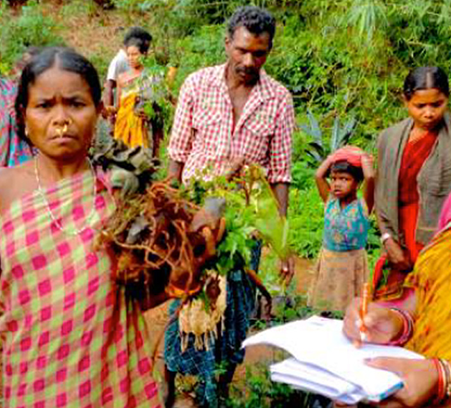
Participating Koraput women developed their own kitchen gardens, and were trained in integrated sustainable farming practices and agroe-cological approaches - particularly how to develop new climate-resilient agricultural approaches, rooted in the traditional methods of food growing.
The heart of the project was the campaign, Grow Your Own Food, to counteract so-called ‘Climate-Smart Agriculture’ (CSA) techniques.
The Grow Your Own Food campaign had two key components: a community learning element, incorporating ecovillage and permaculture approaches, combined with seed preservation and the distribution of seedlings of various fruits and vegetables.
As part of this, the emerging women leaders participated in annual ecovillage design courses which incorporated locally relevant components of sustainable food production and seminars to enhance their skills in leadership, mediation and advocacy as important elements for peace-building, conflict resolution and sustained social-ecological resilience.
The project was a beautiful success. It was testament to the effectiveness of participatory methods for empowering villagers to take action for sustainable development themselves, through locally adapted responses to changing environments.
By project-end, high yields were celebrated in participating villages, which led to surplus produce which the women started to sell.
Villagers who experienced success in the first year by earning supplemental income through the sale of surplus produce encouraged and influenced fellow community members in subsequent years.
Year 1 Milestones
Transition Training And Ecovillage Design Training
42 Community, NGO and university student leaders took part in Transition Training and EDE Training with 77 villagers attended the Ecological dimension at Jinjira village. These practical sessions have created a lasting impact on the village.
Grow Your Own Food Project
The first 250 families received seedlings as part of the new Grow Your Own Food project. Seedlings of banana, papaya, eggplant, drumstick, multi vitamin, tomato, cabbage, cauliflower, puthina, spinach and turnip have been distributed.
Year 2 Milestones
More participants undertake training
The second Ecovillage Design Education, combined with the Transition Training course, was delivered to 33 community leaders, students and government staff of ICDS projects (Anganwadi workers), and was facilitated by three THREAD resource persons. During the EDE course, practical sessions were conducted in three villages, Dongapaiguda, Birlaput and Semiliguda, where villagers were involved and benefited from the course directly. 54 villagers participated in the six days village programme where demonstration of different kinds of manure, soil enhancement techniques and water conservation were experientially learned.
Distribution of Seedlings
A further 250 families benefited from the Grow Your Own Food Project with seedlings of banana, papaya, eggplant, drumstick, multi vitamin, tomato, cabbage, cauliflower, mint, turnip, chilli, squash, Punjabi Palak (spinach), nukul, Kerala greens, Poi and seeds of vegetable creeper plants.
Promotions
All the gardens now have the placard ‘Grow Your Own Food’ in place to popularise and replicate the approaches of other villages.
Results
Preliminary harvest data May – October 2015 In Laxmipur, Sradha Samaj, Semiliguda village ‐ Radha Jani sold papayas weighing approximately 17 kilograms, worth Rs.1500 after consumption.
Taking ownership
Indigenous EDE participants conducted poster demonstrations on peak oil with the title ‘No diesel and no petrol after 2020’. This caught the interest of people and media and the Grow Your Own Food Congress gathered 54 tribal and Dalith organisations, strengthening the partnership within and between the federation of women’s organisations.
Connecting with SDGs
The second year activities incorporated a festival of best agroecological practices from the villages where the Sustainable Development Goals (SDGs) were introduced to the tribal women. They were able to associate each one of the Goals to their reality and the SDG event was the first such outreach programme held in the region.
Year 3 Milestones
Further engagement
Another 250 families engage in the Grow Your Own Food Project, totalling 750 families over the three years.
Reference guide
A manual on organic manure-making has been translated into Orya and distributed to the villagers as a reference guide.
Increased Income
The average supplementary income, after consumption, was found to be in the range of 6,000 to 9,000 Rupees.
Decreased water use
New grass-roots techniques for enrichment of the soil and growing drought-tolerant vegetables have been adopted.
Lasting legacy
All gardens have the ‘Grow Your Own Food’ placard and beneficiaries have led the way in demonstrating techniques and have become the advocates for the project on market days.

